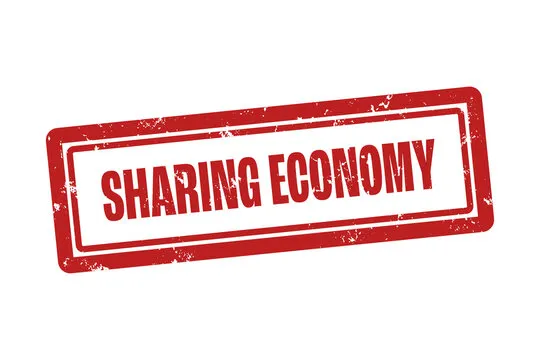The gig economy has become a defining feature of modern work, offering flexibility and independence to millions. However, a heated debate is unfolding over whether gig workers—such as delivery drivers, ride-hailing service providers, and freelance professionals—are receiving fair treatment. Governments, companies, and workers are at odds over key issues like job security, fair pay, and benefits. As new laws and regulations emerge, the future of gig work hangs in the balance.
The Rise of the Gig Economy
1. What is the Gig Economy?
The gig economy refers to a labor market dominated by short-term, freelance, and on-demand work. Unlike traditional jobs, gig workers operate on a contract basis, often through digital platforms like Uber, DoorDash, and Fiverr.

2. Why Has It Grown So Rapidly?
- Technological Advancements: Apps and digital platforms have made gig work accessible and efficient.
- Changing Work Preferences: Many workers prefer flexibility over rigid 9-to-5 jobs.
- Economic Factors: Companies save costs by hiring independent contractors instead of full-time employees.
- COVID-19 Impact: The pandemic accelerated gig work, as traditional jobs became unstable.
The Rights Debate: Employees vs. Independent Contractors
One of the biggest controversies in the gig economy is the classification of workers. Are they employees or independent contractors? The answer determines their legal rights and benefits.
1. What’s the Difference?
- Employees: Receive benefits like health insurance, paid leave, job security, and a minimum wage.
- Independent Contractors: Have flexible work arrangements but lack job security and benefits.

2. Why Do Companies Favor Independent Contractor Status?
- Avoids providing costly benefits.
- Reduces liability and legal responsibilities.
- Keeps operational costs lower.
3. Why Are Workers Fighting for Employee Status?
- Lack of stable income and financial security.
- No protections like health insurance, paid leave, or retirement benefits.
- Risk of unfair terminations and algorithm-driven work conditions.
Legal Battles and Government Regulations
Governments worldwide are taking different approaches to regulating gig work. Some favor stronger worker protections, while others support business flexibility.
1. Notable Laws and Regulations
- California’s AB5 Law (USA): Initially required companies to classify many gig workers as employees, but later amended due to pushback.
- EU’s Gig Worker Directive: Aims to provide gig workers with employment rights like fair pay and protection from algorithmic management.
- India’s Code on Social Security: Proposes extending social security benefits to gig workers, including health and insurance benefits.
- UK’s Supreme Court Ruling on Uber: Declared that Uber drivers are ‘workers’ entitled to minimum wage and paid leave.
2. Challenges in Implementing Regulations
- Resistance from Companies: Many gig platforms argue that stricter rules threaten their business models.
- Mixed Worker Opinions: Some gig workers prefer flexibility over employee status.
- Legal Loopholes: Companies often adjust policies to bypass strict labor laws.

The Impact on Workers and the Economy
1. Positive Effects of Gig Work
- Flexibility: Workers can choose their schedules and workloads.
- Extra Income: Many use gig work as a side hustle.
- Global Job Access: Freelancers can work for international clients.
2. Negative Effects on Workers
- Unpredictable Earnings: No fixed salary, leading to financial instability.
- No Job Security: Risk of deactivation or termination without notice.
- Burnout and Stress: Long working hours with little protection against unfair practices.
What Do Workers Want?
Gig workers have voiced several demands to improve their working conditions:
- Fair and Transparent Pay Structures: Minimum wage guarantees and fair commission rates.
- Access to Benefits: Health insurance, paid leave, and retirement plans.
- Worker Representation: Unions or collectives to negotiate fairer policies.
- Regulated Work Conditions: Protection from unfair terminations and exploitative work practices.
The Future of the Gig Economy
The gig economy is at a turning point, and the outcome of ongoing legal battles and policy debates will shape its future. Here are some possible scenarios:
1. Stronger Worker Protections
Governments could enforce stricter labor laws, requiring platforms to provide benefits and job security. This might lead to increased worker satisfaction but could also raise business costs.
2. A Hybrid Model
Some companies may adopt a mix of flexibility and benefits, offering part-time employee status with limited protections. This could balance worker needs and business efficiency.

3. Further Deregulation
If businesses successfully lobby against stricter laws, gig work may remain as it is, keeping costs low but leaving workers vulnerable.
Conclusion
The debate over gig workers’ rights is far from over. While some view gig work as a liberating alternative to traditional employment, others see it as a pathway to exploitation. Governments, companies, and workers must find a middle ground that preserves flexibility while ensuring fair treatment. The decisions made today will determine whether the gig economy remains a sustainable and equitable model for the future.
Climate Activists Demand Urgent Action: Stricter Environmental Policies Needed Now!






